
Find Help
More Items From Ergsy search
-

Are there any fees associated with balance transfers?
Relevance: 100%
-

Is a balance transfer the right choice for me?
Relevance: 79%
-

What is a balance transfer credit limit?
Relevance: 79%
-

How does a balance transfer work?
Relevance: 78%
-

What is a Balance Transfer Credit Card?
Relevance: 78%
-

How do I apply for a balance transfer card?
Relevance: 77%
-

Can I transfer a balance to a card with no promotional offer?
Relevance: 76%
-

How long does a balance transfer take?
Relevance: 74%
-
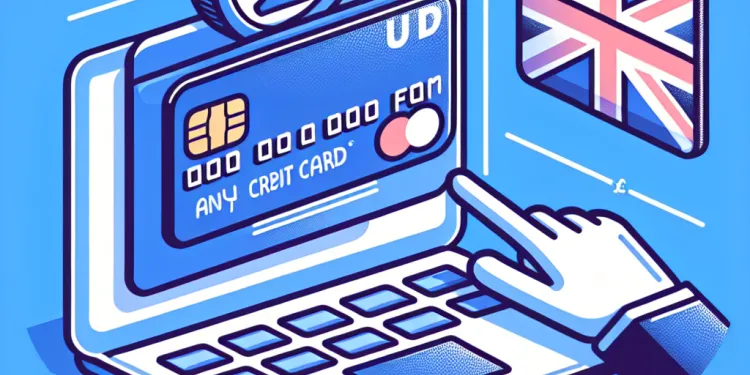
Can I transfer balances from any credit card?
Relevance: 73%
-

What is the typical duration of a promotional balance transfer offer?
Relevance: 72%
-

What are the benefits of a balance transfer credit card?
Relevance: 72%
-

Can I transfer a balance from a loan to a credit card?
Relevance: 71%
-
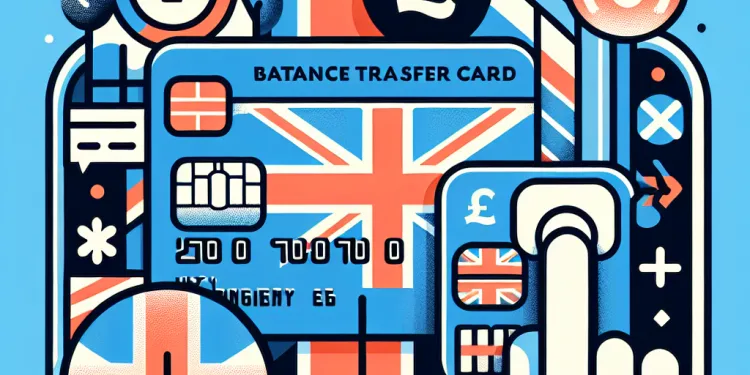
Can I use a balance transfer card for new purchases?
Relevance: 71%
-

Will transferring a balance affect my credit score?
Relevance: 71%
-

Do balance transfer offers apply to new purchases?
Relevance: 68%
-

What is a good credit score to qualify for a balance transfer card?
Relevance: 63%
-
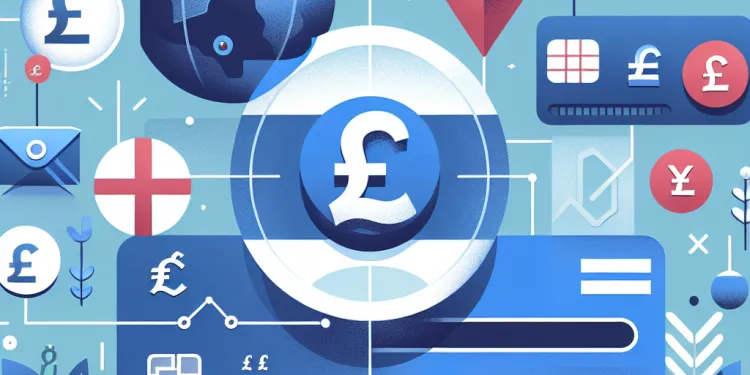
What should I consider before doing a balance transfer?
Relevance: 53%
-

What fees should I avoid when choosing a new bank?
Relevance: 50%
-

Is there a minimum transfer amount required?
Relevance: 48%
-

Can I transfer my ISA between providers?
Relevance: 47%
-

Product Transfer Rate Switch vs Remortgage What's Best
Relevance: 46%
-
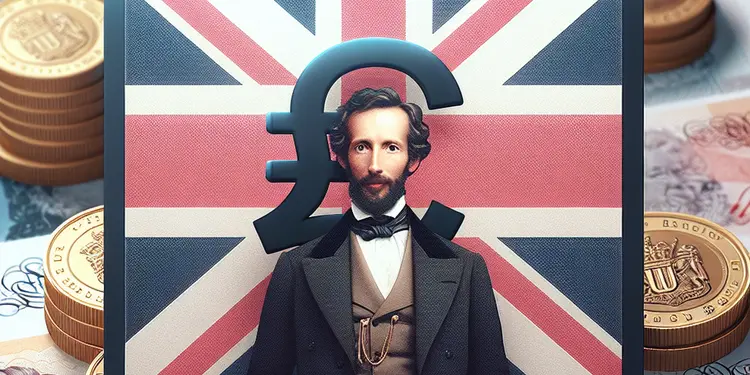
What fees should I avoid when choosing a new bank?
Relevance: 46%
-

Why are some banking fees unexpectedly high?
Relevance: 45%
-

Are there any hidden fees with Monzo or Revolut?
Relevance: 45%
-

What are some examples of hidden fees in banking?
Relevance: 42%
-
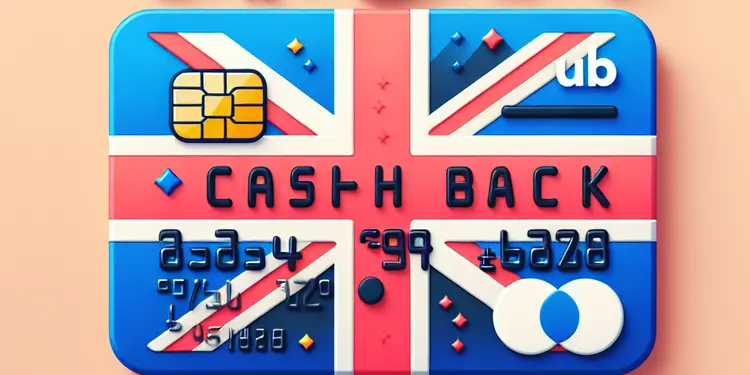
Can I transfer cashback rewards to another credit card?
Relevance: 39%
-

What feedback do customers give regarding banking fees?
Relevance: 39%
-

Are there specific banking services more prone to opaque fee structures?
Relevance: 38%
-

Can I transfer my TV license to a new address?
Relevance: 38%
-

How are embryos transferred during IVF?
Relevance: 37%
-

Do online banks have lower fees than traditional banks?
Relevance: 37%
-

How many embryos are usually transferred in IVF?
Relevance: 37%
-

Can a company refuse to register a share transfer?
Relevance: 37%
-

How do banking fees impact financial inclusion?
Relevance: 37%
-

How can consumers protect themselves from hidden banking fees?
Relevance: 36%
-

Is there a fee to bring a case to the tribunal?
Relevance: 36%
-

Do all banks have the same fee structures?
Relevance: 35%
-
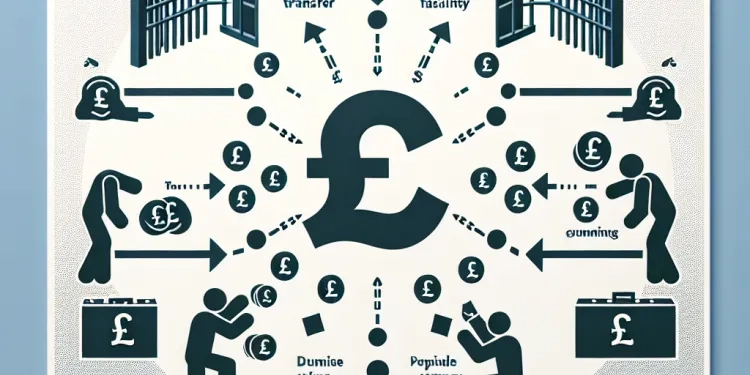
What happens if an inmate is transferred to another facility?
Relevance: 35%
-
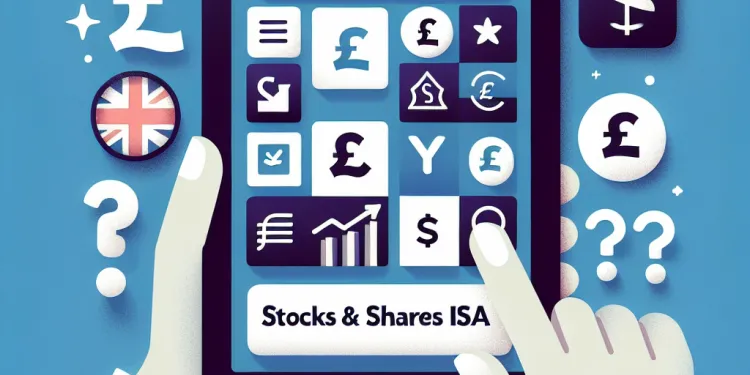
Are there fees associated with Stocks & Shares ISAs?
Relevance: 34%
-

Are there any hidden fees I should be aware of?
Relevance: 33%
Understanding Balance Transfer Fees
When managing credit card debt, many people in the UK consider balance transfers as a viable option to reduce interest expenses. However, it's crucial to understand that most balance transfers come with associated fees, which can affect the overall savings intended from the transfer. This article explores the common fees involved and offers insights into what consumers should be aware of when they opt for a balance transfer.
What is a Balance Transfer Fee?
A balance transfer fee is a charge imposed by credit card issuers when you move an outstanding balance from one credit card to another. This fee is typically calculated as a percentage of the amount being transferred. For UK credit cards, this percentage generally ranges from 1% to 3% of the transferred amount. For example, if you transfer a balance of £1,000, the fee could range from £10 to £30. While this may seem like a small cost, it can add up, particularly with larger balances.
Are There Credit Cards with No Balance Transfer Fees?
While most credit cards do charge a balance transfer fee, some cards offer promotional periods during which the fee may be waived or reduced. These no-fee balance transfer offers can be appealing, providing an opportunity to save more if used wisely. However, such offers might come with conditions, such as a requirement to transfer the balance within a certain timeframe to qualify for the no-fee benefit. It’s important to read the terms and conditions of these offers carefully to ensure they meet your financial needs.
Promotional Interest Rates
When considering a balance transfer, the interest rate is another critical factor. Many cards in the UK offer promotional interest rates on balance transfers, ranging from 0% to a low percentage for a specified period, such as 12, 18, or even 24 months. This rate can significantly reduce the cost of carrying debt if the balance is paid off within the promotional period. However, after this period, the interest rate reverts to a standard variable rate, which can be much higher, so it’s important to plan repayments accordingly.
Other Potential Costs
Besides the balance transfer fee, there might be additional costs involved, such as penalty fees if payments are missed or if the transfer exceeds the credit limit of the new card. Also, transferring a balance from a card with a low limit may not be cost-effective in the long run, as it could lead to maxing out the card, which negatively impacts credit scores by increasing credit utilization.
Conclusion
While balance transfers can be a powerful tool for managing and reducing credit card debt, it's essential to be aware of the fees and conditions involved. By understanding the costs and ensuring that the benefits outweigh them, UK consumers can make informed decisions that help them achieve financial stability and reduce debt effectively.
Understanding Balance Transfer Fees
In the UK, people with credit card debt might use balance transfers to save on interest. This means moving what you owe from one card to another. But there are fees to think about. These fees can change how much money you save. This article explains the fees and gives advice on what to look out for when doing a balance transfer.
What is a Balance Transfer Fee?
A balance transfer fee is money you pay when you move debt from one credit card to another. The fee is usually a small part of the amount you move. In the UK, this is often between 1% and 3%. For example, if you move £1,000, the fee could be £10 to £30. It might not seem a lot, but it can add up if you transfer a lot of money.
Are There Credit Cards with No Balance Transfer Fees?
Most credit cards charge this fee. But some cards let you transfer without a fee for a short time. This can help you save more money. But, these offers often have rules, like needing to transfer the balance quickly. Read the offer's details to make sure it helps you.
Promotional Interest Rates
Another important thing is the interest rate. Many UK cards have low or 0% interest for a limited time, like 12 to 24 months, when you transfer a balance. This can help reduce costs if you pay off the debt during this time. After the deal ends, the interest rate can go up, so plan your payments carefully.
Other Potential Costs
Besides the transfer fee, there can be other charges. You might get a penalty if you miss a payment or go over your credit limit. Also, if you transfer money to a card with a low limit, it could fill up quickly. This can hurt your credit score.
Conclusion
Balance transfers can help manage debt, but it's important to know about the fees and rules. By understanding these, people in the UK can make smart choices to become debt-free and improve their finances.
For help, try using online tools or talk to a financial advisor.
Frequently Asked Questions
What is a balance transfer fee?
A balance transfer fee is a charge imposed by a credit card issuer when you transfer a balance from another credit card or loan to the new card.
How much is the typical balance transfer fee?
Balance transfer fees typically range from 3% to 5% of the amount being transferred.
Are there any credit cards that offer no balance transfer fee?
Yes, some credit cards offer promotional periods where there is no balance transfer fee.
Is the balance transfer fee different from the interest rate?
Yes, the balance transfer fee is a one-time fee, while the interest rate is the ongoing interest charged on the transferred balance.
Do all credit cards have a balance transfer fee?
Not all credit cards have a balance transfer fee, but many do. It's important to check the terms and conditions of the card.
Can I negotiate a lower balance transfer fee?
It may be possible to negotiate a lower fee, but it's uncommon. Contact your credit card issuer to inquire.
Will a balance transfer fee apply to multiple transfers?
Yes, a balance transfer fee typically applies to each individual transfer you make.
How can I avoid paying a balance transfer fee?
Look for credit card offers that waive the balance transfer fee for a certain period.
What should I consider before paying a balance transfer fee?
Consider the cost of the fee relative to the interest savings you will achieve by transferring the balance.
When is the balance transfer fee charged?
The fee is usually charged at the time the transfer is processed.
Does the balance transfer fee impact my credit limit?
Yes, the fee is added to your transferred balance, reducing your available credit.
Is the balance transfer fee refundable?
No, balance transfer fees are generally non-refundable.
Can I transfer a balance from the same bank?
Balance transfers are typically not allowed between credit cards issued by the same bank.
Do promotional 0% interest rates include a balance transfer fee waiver?
Not always. A 0% APR promotion may still include a balance transfer fee.
Does a balance transfer affect my credit score?
A balance transfer itself may not directly impact your credit score, but the new credit inquiry and changes to your credit utilization can affect it.
How long do I have to complete a balance transfer?
Promotional periods for balance transfers vary, often ranging from 60 to 120 days after account opening.
What happens if I pay off my balance before the promotional period ends?
If you pay off your balance before the promotional period ends, you avoid accruing interest on the remaining balance.
Is there a maximum amount I can transfer?
Yes, the maximum amount is typically constrained by your available credit limit and specific card terms.
Are there hidden fees in balance transfers?
Hidden fees are uncommon, but always read the terms to ensure you understand all potential charges.
How is the balance transfer fee calculated?
The fee is usually a percentage of the transferred amount, often with a minimum fee charge.
What is a balance transfer fee?
A balance transfer fee is money you pay to move debt from one card to a new card.
It's like a small fee for asking another card to help you with your debt.
Helpful tips: You can use a calculator to see how much extra you would pay with the fee. Ask someone you trust to help if you have questions.
A balance transfer fee is money you pay when you move debt from one credit card or loan to another credit card. This is something credit card companies charge you for doing the transfer.
Here are some tips to help understand better:
- Read slowly and take your time.
- Ask someone to explain if you're unsure.
- Use a calculator to see how much the fee is.
What is the usual fee to move money to another card?
When you move money from one card to another, you usually pay a fee. This fee is usually between 3% and 5% of the money you move.
Do any credit cards let you transfer your balance without a fee?
Yes, some credit cards let you move money you owe without charging you for a certain time.
Is the fee for moving money different from the interest rate?
Let's talk about money and fees.
If you move money from one card to another, you might pay a fee. This is called a "balance transfer fee."
The "interest rate" is the extra money you pay if you don't pay all your card bills each month.
So, yes, the fee for moving money is different from the interest rate.
You can use a calculator or ask someone to help you understand. That might make it easier!
Yes, the balance transfer fee is a fee you pay one time. The interest rate is the extra money you might have to pay all the time on the money you moved.
Do all credit cards charge money to move debt?
Not all credit cards make you pay when you move debt from one card to another. Check the card details to find out. If you need help, ask a friend or family member to explain. You can also use online tools that read text out loud.
Not all credit cards charge you to move money you owe from one card to another, but many do. Make sure you look at the rules of the credit card.
Can I ask to pay less for moving my money?
You can ask your bank to lower the fee when you move your credit card balance to another card. Here are some tips:
- Call the bank and talk to them.
- Tell them why you want to pay less.
- Be polite and explain your reasons clearly.
- Ask if there are any deals or offers.
If you need help understanding, ask a friend or family member to help you.
You might be able to ask for a lower fee, but it doesn't happen often. Try calling your credit card company to ask.
Do you pay a fee for moving money more than once?
Yes, you usually have to pay a fee when you move money from one card to another.
How can I switch my balance without paying a fee?
Find credit card offers that do not charge a fee when you move money you owe from one card to another for a certain time.
What should I think about before paying a balance transfer fee?
If you want to move your debt to a new credit card, you might have to pay a balance transfer fee. Here are things to think about:
- Cost: How much will the fee be? Make sure it's not too high.
- Savings: Will moving the debt save you money? Check if your interest rate will be lower.
- Time: How long will it take to pay off the debt? Make a plan to pay it off in time.
- Tools: Use a calculator to see if the fee is worth it.
These points can help you decide if you should pay the balance transfer fee.
Think about how much the fee costs compared to how much money you will save on interest by moving the balance.
When do I pay the balance transfer fee?
You pay the balance transfer fee when you move money to a new credit card. This usually happens when you first make the transfer. If you need help understanding this, you can ask someone you trust or use a tool like a calculator to help you know how much you'll be paying.
The fee is paid when you make the transfer.
Will moving my debt affect how much I can borrow?
When you move your debt from one card to another, there might be a fee. This fee could change how much money you can borrow on the new card.
Helpful Tip: You can use a calculator to see how the fee changes the money you can use.
Yes, they add the fee to the money you moved. This means you have less money to use on your credit card.
Can you get your money back for a balance transfer fee?
No, you usually cannot get a balance transfer fee back once you pay it.
Can I move money I owe at the same bank?
Yes, you might be able to move money you owe at the same bank. It's best to ask your bank how this works. They can tell you the steps you need to take.
If you need help understanding, you can:
- Ask a friend or family member to explain it to you.
- Use a calculator to help with numbers.
- Write down the steps so you can follow them later.
You usually can't move money from one credit card to another if both cards are from the same bank.
Is there a balance transfer fee with 0% interest deals?
When you move money you owe to a new card with 0% interest, do you have to pay a fee?
For help, you can:
- Ask someone who knows about money to help you.
- Use a calculator to understand fees.
- Look for simple guides about money online.
No, not always. Even if there is a 0% interest deal, you might still have to pay a fee to move your debt from one card to another.
Will moving my credit card balance change my credit score?
Moving your money from one card to another might not change your score, but it can be affected by checking for new credit or using more of your credit limit.
It might help to use tools like a budget planner or ask someone to explain it to you.
How much time do I have to move my money to another card?
When you move money to a new account, you often get a special offer. This offer lasts for a certain time. It can be between 60 and 120 days after you open the account.
What if I pay all the money I owe before the special time is over?
If you pay back all the money early, you might save money. You won't have to pay extra fees if you finish paying before the special time ends. Here are tips to help:
- Make a plan to pay a little bit each week.
- Ask someone to remind you about your payments.
- Use a phone or calendar to keep track of your payment days.
If you finish paying the money you owe before the special time is over, you won’t have to pay extra interest.
Can I send a lot of money at once?
Yes, the most you can spend usually depends on how much credit the card company gives you and any rules they have.
Do balance transfers have extra costs you can't see?
Extra costs are not common, but always read the rules to make sure you know about all possible charges.
How do they figure out the cost to move money from one card to another?
You have to pay a fee when you move money. The fee is usually a small part of the money you are moving. Sometimes, you have to pay a least amount, even if it is more than the small part.
Useful Links
This website offers general information and is not a substitute for professional advice.
Always seek guidance from qualified professionals.
If you have any medical concerns or need urgent help, contact a healthcare professional or emergency services immediately.
Some of this content was generated with AI assistance. We’ve done our best to keep it accurate, helpful, and human-friendly.
- Ergsy carfully checks the information in the videos we provide here.
- Videos shown by Youtube after a video has completed, have NOT been reviewed by ERGSY.
- To view, click the arrow in centre of video.
- Most of the videos you find here will have subtitles and/or closed captions available.
- You may need to turn these on, and choose your preferred language.
- Go to the video you'd like to watch.
- If closed captions (CC) are available, settings will be visible on the bottom right of the video player.
- To turn on Captions, click settings .
- To turn off Captions, click settings again.
More Items From Ergsy search
-

Are there any fees associated with balance transfers?
Relevance: 100%
-

Is a balance transfer the right choice for me?
Relevance: 79%
-

What is a balance transfer credit limit?
Relevance: 79%
-

How does a balance transfer work?
Relevance: 78%
-

What is a Balance Transfer Credit Card?
Relevance: 78%
-

How do I apply for a balance transfer card?
Relevance: 77%
-

Can I transfer a balance to a card with no promotional offer?
Relevance: 76%
-

How long does a balance transfer take?
Relevance: 74%
-

Can I transfer balances from any credit card?
Relevance: 73%
-

What is the typical duration of a promotional balance transfer offer?
Relevance: 72%
-

What are the benefits of a balance transfer credit card?
Relevance: 72%
-

Can I transfer a balance from a loan to a credit card?
Relevance: 71%
-

Can I use a balance transfer card for new purchases?
Relevance: 71%
-

Will transferring a balance affect my credit score?
Relevance: 71%
-

Do balance transfer offers apply to new purchases?
Relevance: 68%
-

What is a good credit score to qualify for a balance transfer card?
Relevance: 63%
-

What should I consider before doing a balance transfer?
Relevance: 53%
-

What fees should I avoid when choosing a new bank?
Relevance: 50%
-

Is there a minimum transfer amount required?
Relevance: 48%
-

Can I transfer my ISA between providers?
Relevance: 47%
-

Product Transfer Rate Switch vs Remortgage What's Best
Relevance: 46%
-

What fees should I avoid when choosing a new bank?
Relevance: 46%
-

Why are some banking fees unexpectedly high?
Relevance: 45%
-

Are there any hidden fees with Monzo or Revolut?
Relevance: 45%
-

What are some examples of hidden fees in banking?
Relevance: 42%
-

Can I transfer cashback rewards to another credit card?
Relevance: 39%
-

What feedback do customers give regarding banking fees?
Relevance: 39%
-

Are there specific banking services more prone to opaque fee structures?
Relevance: 38%
-

Can I transfer my TV license to a new address?
Relevance: 38%
-

How are embryos transferred during IVF?
Relevance: 37%
-

Do online banks have lower fees than traditional banks?
Relevance: 37%
-

How many embryos are usually transferred in IVF?
Relevance: 37%
-

Can a company refuse to register a share transfer?
Relevance: 37%
-

How do banking fees impact financial inclusion?
Relevance: 37%
-

How can consumers protect themselves from hidden banking fees?
Relevance: 36%
-

Is there a fee to bring a case to the tribunal?
Relevance: 36%
-

Do all banks have the same fee structures?
Relevance: 35%
-

What happens if an inmate is transferred to another facility?
Relevance: 35%
-

Are there fees associated with Stocks & Shares ISAs?
Relevance: 34%
-

Are there any hidden fees I should be aware of?
Relevance: 33%


